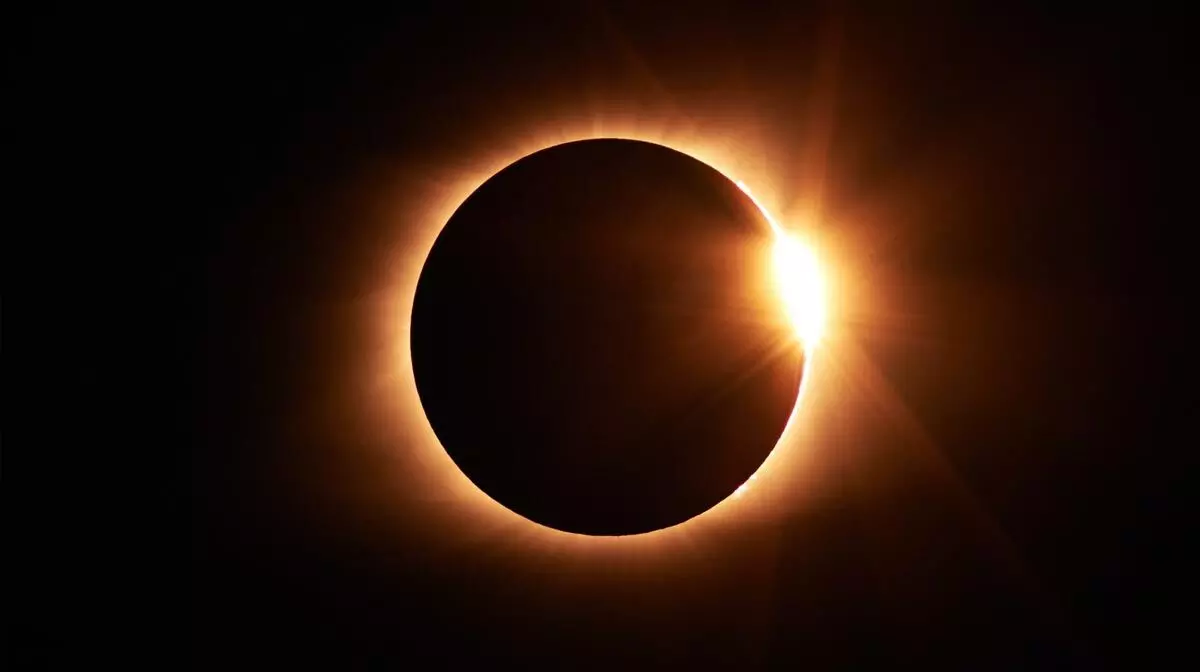Solar Eclipse 2024: Date, Timing, and Sutak Kaal Impact

In Hinduism, solar eclipses hold significant importance, particularly in terms of astrological beliefs. According to astrological principles, a solar eclipse always takes place on the day of Amavasya (new moon).
In Hinduism, solar eclipses hold significant importance, particularly in terms of astrological beliefs. According to astrological principles, a solar eclipse always takes place on the day of Amavasya (new moon). The period known as "Sutak Kaal" starts 12 hours before the eclipse. During this time, religious and auspicious activities are considered inauspicious, and it is advised to refrain from performing them. Any such activities carried out during the Sutak Kaal are believed to bring negative effects. To mitigate the adverse impact, certain rituals and measures are often undertaken to remove the dosha (curse) caused by auspicious acts during this period.
The second and final solar eclipse of 2024 is scheduled to occur on the day of PitruVisarjan Amavasya. This is a day of great significance, as it is devoted to performing rituals like Tarpan and Pind Daan for both known and unknown ancestors. These rituals are believed to provide peace to the souls of ancestors, allowing them to attain salvation. On this day, families bid farewell to their ancestors following the prescribed methods found in sacred texts. However, with the solar eclipse coinciding with PitruVisarjan Amavasya, the Sutak period is expected to start at 9:13 am, raising questions about how to conduct the traditional rituals for ancestors during this time.
Solar Eclipse Timing
Addressing this issue, renowned astrologer Pandit Shridhar Shastri from Haridwar explained that the solar eclipse will begin on the night of October 2, 2024, during the new moon of the Ashwin month. The eclipse will start at 9:13 pm and continue until 3:17 am on October 3. The Sutak Kaal, the period of inauspiciousness, will commence at 9:13 am on October 2. This eclipse, occurring at night as per Indian Standard Time, will not be visible in India. However, it will be visible in several western countries such as the United States, Canada, New Zealand, Argentina, Brazil, Iceland, the Cook Islands, Fiji, and the Arctic region.
Impact of the Eclipse on India
Since the eclipse will not be visible in India, the Sutak Kaal will not be considered valid in the country. As a result, religious and auspicious deeds performed on this day in India will not be affected. According to the scriptures, such activities carried out during this time will still yield positive and favourable outcomes.








